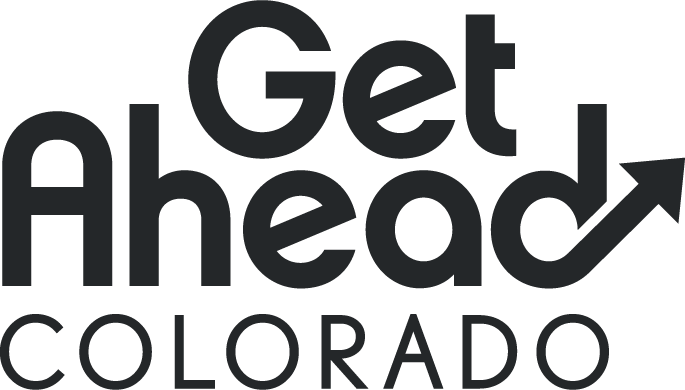Find information about how to support mch economic mobility work in your local community.
sTRATEGIES FOR oUTREACH
Engage community partners to strengthen and expand enrollment in services that support economic mobility.
Conduct training for your partners about tax credits. Include information about the credits such as eligibility, income requirements, sample credit amounts, and any tax changes for the upcoming year.
Promote tools like MyFriendBen that help streamline benefit eligibility for your community members.
Gather and share data, research, and policies related to improved access to economic mobility and the benefits of improved economic mobility among Coloradans.
Gather and analyze data related to economic mobility and tax credits.
Conduct case studies on the effects of tax credits on the financial well-being of your community.
Identify and implement practices and/or policy and systems changes that support increased tax credit claims.
Work with other state agencies to increase awareness of tax credits and referrals to free tax filing.
Community workshops and/or webinars: host workshops and/or webinars educating the community about available tax credits and how to claim these credits. Provide clear, concise information on eligibility, tax return filing, and benefits of filing.
Identify barriers to successful outreach for hard-to-reach populations like immigrants/refugees/newcomers, farm workers, non-English speakers, and others.
Create marketing materials to promote tax credits. Access our robust Partner Toolkit!
Plan and execute a data-driven and community-informed approach to boosting economic mobility and accessing all of the potential resources available.
Use the data collected and convene a town hall of community members and peers to provide feedback and suggestions about program improvements.
Use the data collected to implement strategies to maximize utilization of the Federal and State Earned Income Tax Credit through outreach and education to community members.
Tax Credit outreach
Access literature and research, access a list of VITA/TCE sites, and find links to resources available on Get Ahead Colorado.
-
-
Get free in-person help and support from an IRS-certified tax preparer and file your taxes at a Colorado Volunteer Income Tax Assistance (VITA), Colorado Tax Counseling for the Elderly (TCE), or AARP Tax-Aide site. These sites offer free tax help and free tax preparation to people who generally make $64,000 or less and for people with disabilities. VITA/TCE services are free, accurate, and trusted sources for preparing tax returns.
Note that many VITA sites may not be open after April 15, 2024.
View the VITA site list to check if your nearest VITA site is still open, or search for open sites near you using the map below.
-
Our multi-lingual partner toolkit offers free resources to reach people and families in your community.
economic mobility strategies
Check out our Other Benefits page for health benefits, energy assistance, banking, and other resources your community members may be eligible for.
-
Six percent of Coloradans are unbanked, which is higher than the national average. Without a bank account, it is harder for families to make basic financial transactions and build savings.
By partnering with local banks and credit unions, Bank On Colorado provides a list of low-cost or no-cost bank accounts that are accessible to everyone. You can use this tool to help families get connected to banking services. Look below for the Bank On Colorado website.
Public health agencies can share information about this program with community organizations, care coordinators, and other partners who may know families who do not currently have banking services.
-
Public health workers can share information about financial counseling with community based organizations in their area. The Consumer Financial Protection Bureau's Your Money, Your Goals website has toolkits and information for how to talk about money with the people you may serve.
Financial counseling is useful, particularly for families living in low-income, as it provides them with the necessary tools and resources to improve their financial situation. It helps them develop a better understanding of budgeting, saving, and managing debt.
Additionally, financial counseling can assist low-income families in setting and achieving their financial goals, such as building emergency funds, improving credit scores, and accessing affordable financial products and services. By receiving personalized guidance and support, low-income families can enhance their financial literacy, make informed financial decisions, and work towards long-term financial stability.
-
Paid leave programs are a way for families to spend quality time with their infant after giving birth. Colorado has recently implemented a paid family leave insurance program that ensures all Coloradans have access to paid leave. This program, called FAMLI, will start providing benefits on January 1st, 2024.
Public health workers can help provide information about this program to community organizations that work with expectant parents and other government programs that support new families. This can ensure that all parents get the maximal benefit they are eligible for.
-
It’s essential for borrowers to familiarize themselves with the resources and tools available as they prepare for repayment. Borrowers can create an account at StudentAid.Gov to access loan detail information including loan servicer(s) and payment amounts.
A new repayment plan, named Saving on a Valuable Education (SAVE) plan, would revise the existing income-driven plan known as REPAYE, and could lower payments. Those signed up for the REPAYE plan will get automatic enrollment in the SAVE plan. Information about the SAVE plan is available on the Federal Student Aid website.
The Colorado Attorney General’s Student Loan Ombudsperson may be able to help borrowers navigate the student loan repayment process. The Ombudsperson is responsible for receiving, reviewing, and attempting to resolve student loan borrower complaints. Borrowers having problems with their student loans can file a complaint with the student loan ombudsperson on this webpage or send an email to studentloans@coag.gov.
You can access the Prepare to Repay FAQ materials HERE, and the Spanish language Prepare to Repay FAQ materials HERE.
CYSHCN ECONOMIC MOBILITY STRATEGIES
-
If you have a disability, are blind, or are over age 65 and you also have low income and limited resources, you may qualify for Supplemental Security Income (SSI), a program run by the Social Security Administration (SSA). Children under 18 can also qualify, click here for details.
If you qualify for SSI, you get monthly payments to help you pay for your basic needs, like food, clothing, and shelter. A person who is single can get up to $914 per month in benefits. You also get Health First Colorado (Medicaid) health coverage automatically, without having to file a separate application. You must have less than $2,000 in countable resources ($3,000 for a couple) to qualify for SSI benefits.
Apply for SSI benefits by clicking here
If you want help applying for SSI, click here.
For more information, contact a benefits counselor.
-
For children on Supplemental Security Income (SSI) or Social Security Disability Insurance (SSDI), there are special accounts that allow them to save more money than would otherwise be permitted by program’s asset limits. These ABLE Accounts give children with disabilities and their families the ability to save money and prepare for their future. Families receive $25 when they open their account.
Click here for information about ABLE Accounts in Colorado.
-
Some parents of children with high degrees of medical need may be able to become trained and a Certified Nursing Aide (CNA) and be paid to provide care for their children. This is a lengthy process and not every family qualifies, but for those who do it can be a critical way to earn income. Click here for more information about Parent as CNA.
MESSAGING DOCUMENTS
Messaging documents and literature that can be used to help generate buy-in about the benefit of economic mobility for improving health outcomes.




